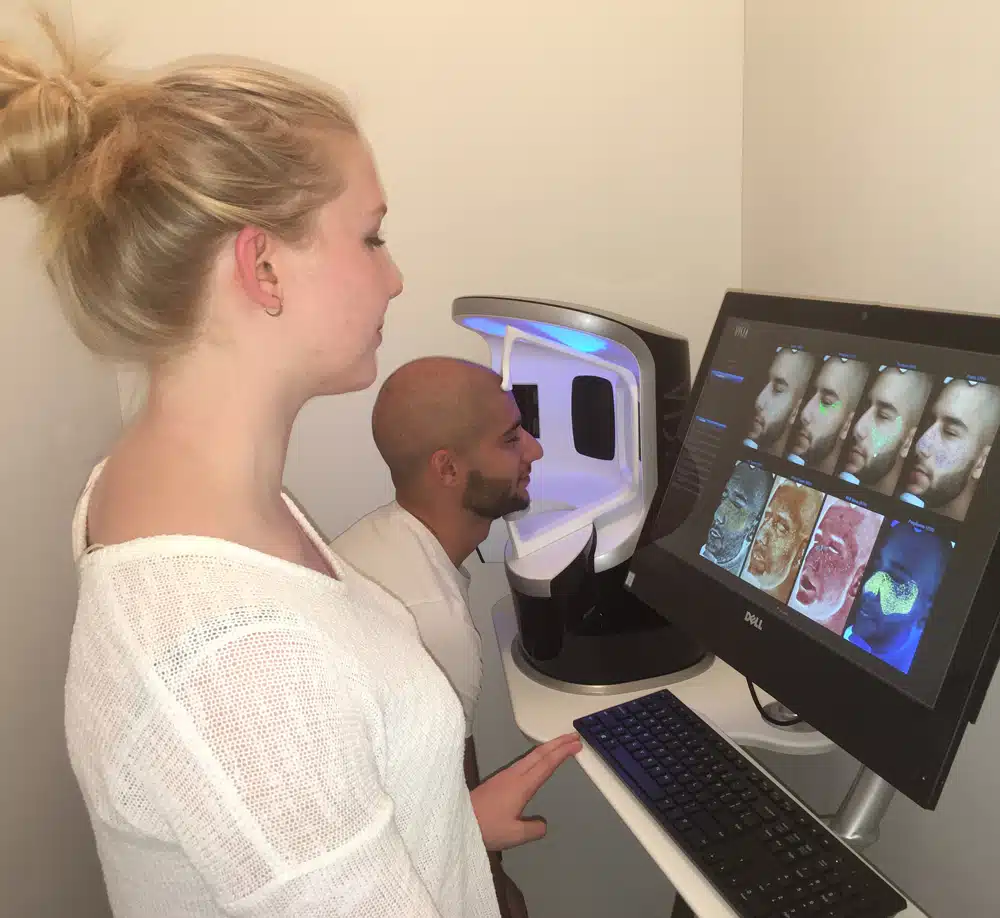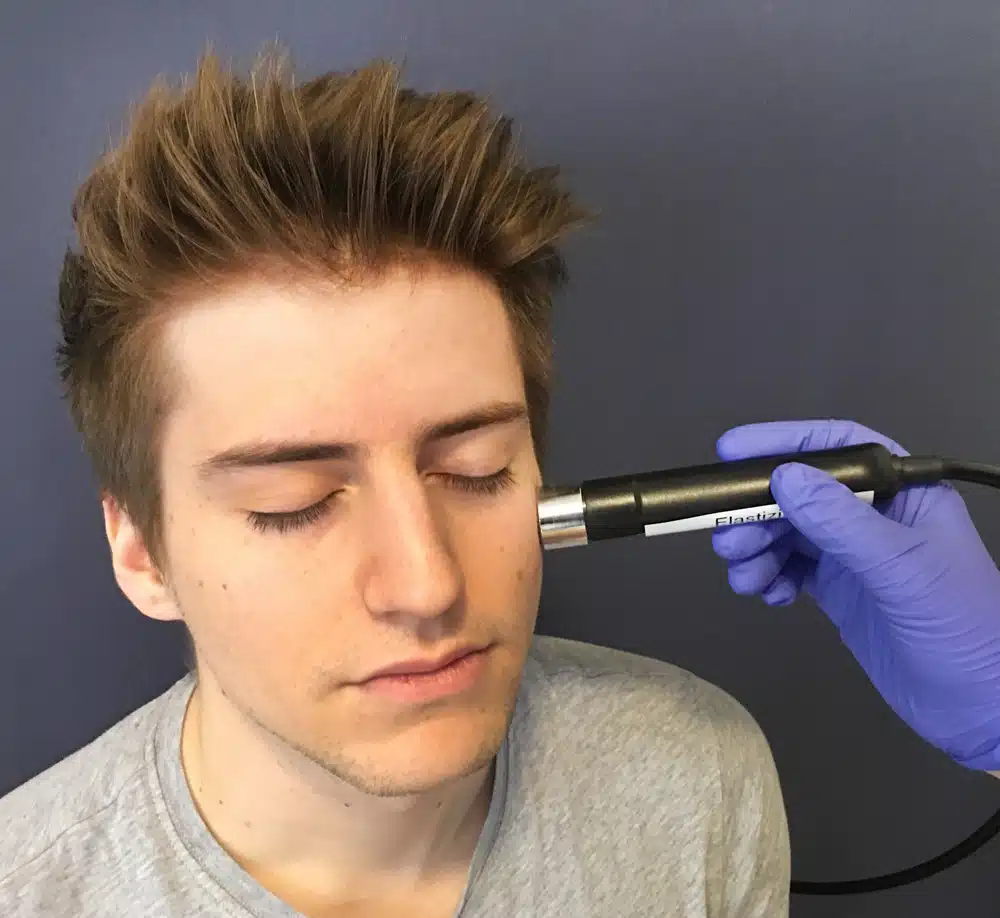Dermatologists are often asked by their patients about the "right" cream for them. But what exactly makes a cream "right"? Interestingly, in dermatology it is not only the active ingredient of a cream that matters, but in particular the basis, which is known in specialist circles as "galenics".
What is galenics?
The "right" cream for the care of the skin or the treatment of a skin disease must be adapted to the skin condition to be cared for. There are a variety of ingredients that can help to alleviate skin problems such as itching, fungal infections or Acne to alleviate pain. However, the basis into which these active ingredients are incorporated - the so-called galenics - is just as important.
Galenics refers to the composition and structure of a skin care product. It determines how active ingredients are formulated in a cream or lotion to achieve optimal efficacy. Choosing the right galenics is crucial as it influences how products act on the skin, how well they are absorbed and how they are tolerated.
For weeping inflammations on the skin, which are often characterized by redness and blistering, hydrophilic, low-fat bases are the right choice. These include oil-in-water emulsions and gels, for example. These help to absorb excess moisture and soothe the skin.
However, if the eczema is dry and low in oil, oily bases such as hydrophobic ointments or water-in-oil emulsions should be used. Oily ointments increase the transfer of active ingredients into the deeper layers of the skin and thus contribute to healing.
The importance of a skin analysis before choosing a cream
If there is no skin disease and you are just looking for a suitable skin care product, e.g. for the face, a Skin analysis with the development of a care concept. Dermatologists can precisely analyze the condition of the skin using modern skin measuring devices such as the corneometer, sebumeter and cutometer.
- The corneometer is the most widely used skin moisture measuring device in the world and measures the moisture of the skin surface accurately and reproducibly.
- The sebumeter determines the oil content of the skin's surface, which is important for finding the right moisture balance.
- The Cutometer measures the elasticity of the skin and helps to assess skin ageing and skin elasticity.
In addition, questions about the degree of bacterial colonization, pore size and light damage are answered using the Visia Cam. These advanced measuring devices enable customized skincare that is tailored to the individual skin condition.
Which cream for wrinkles?
Wrinkles are a natural part of the ageing process that many people find annoying. However, there are creams that have been specially developed to reduce the appearance of wrinkles and make the skin look firmer and more youthful. When choosing an anti-wrinkle cream, look for ingredients such as retinol, hyaluronic acid, collagen and antioxidants. These ingredients can help maintain skin hydration, promote collagen production and minimize fine lines and wrinkles.
In our Store On the homepage you will find a selection of products we have created for specific needs. For even more effective results, you should consider our range of Wrinkle treatments into consideration.
Couperose: Which cream is suitable?
Couperose is a skin condition in which the fine blood vessels in the skin are dilated and become visible, often in the form of red veins on the face. To soothe couperose skin and reduce redness, look for creams that contain soothing ingredients such as chamomile, panthenol and rosemary. These can help to reduce inflammation and strengthen the skin barrier.
Alternatively, we offer a range of laser and light therapies for Treatment of couperose on. These can be used in combination with a cream.
Which cream for dark circles?
Eye circles can be caused by various factors, including lack of sleep, genetics and skin ageing. To reduce the appearance of dark circles, look for eye creams that contain ingredients such as caffeine, hyaluronic acid and peptides. These can help reduce puffiness, tighten the skin and lighten dark circles.
Which cream helps with rosacea?
Rosacea is a chronic skin condition characterized by redness, inflamed skin and visible blood vessels. When choosing a cream to treat rosacea, it is important to choose gentle and soothing ingredients that will not irritate the skin. Recommended ingredients include aloe vera, green tea, oat extract and niacinamide. These can help to reduce inflammation and soothe the skin.

The Visia Cam can be used to measure the general condition of the skin.
Cream for age spots on the face
Age spots, also known as lentigines, are brown spots on the skin that appear over time due to exposure to UV rays. To reduce the appearance of age spots, look for creams with lightening ingredients such as vitamin C, glycolic acid and niacinamide. These ingredients can help to lighten the skin and minimize the appearance of age spots.
In addition to creams, laser therapy can also help, reduce the appearance of age spots.
The importance of proper care
In addition to specific skin problems, a good daily skin care routine is crucial. A high-quality moisturizer that is tailored to your skin type can help to retain skin moisture and keep it healthy and radiant. Look for products that do not contain irritating ingredients and are gentle on the skin.
Conclusion
Choosing the right face cream can have a significant impact on the health and appearance of your skin. A thorough skin analysis is the first step to finding the right cream for your specific needs. Whether you want to reduce wrinkles, treat redness or simply keep your skin healthy and radiant, there are a variety of skincare products available to suit your needs. If you're not sure which cream is right for you, consult one of our dermatologists. Your skin deserves the best care you can give it.
Please note that this article is for informational purposes only and is not a substitute for medical advice. Always consult our specialist staff to obtain an accurate diagnosis and find the best treatment option for your individual situation.




